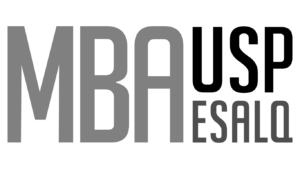Financial instruments are important to avoid losses and ensure gains in the face of price oscillation in the market. In Brazil, they are part of good management, which takes into account offer and demand and economic policies to seek a good return from the activity.
Thiago Bernardino, a professor at the MBA USP/Esalq in Agribusiness, explains more about each of the financial instruments, which helps to reduce uncertainties and to prospect better results, especially in the market of beef cattle.
Futures market, forward market, options market and over-the-counter market. Check out the details below.
Futures market
The first of the financial instruments listed by the professor is based on futures market prices. This modality of negotiation corresponds to the exchange trading in which, every day, accredited people (brokers) make a type of auction of contracts for future delivery.
“In Brazil, this occurs in a place called Bolsa de Mercadorias e de Futuros – B3, in São Paulo, a non-profit institution in which the securities negotiated are in custody and the correct adjustments are made, that is, the accounts of those who have something to receive or pay”, comments the professor.
Despite involving considerable sums of money every day and requiring great control, the functioning of this market is relatively simple. Contracts have a mechanism called daily adjustment, which aims to ensure the protection of the interests of the stakeholders.
The seller of the future position can be a producer who has animals to sell in the coming months and needs safety in relation to price variations in the following months.
“The producer has animals in fattening and makes calculations of the costs of the beef cattle they are producing. With information about cost and future prices, they can plan their activities”, continues Bernardino.
“If future prices are higher than costs, the producer can make the sale in the future market and thus ensure profitability. Otherwise, they can choose to reduce production or even rethink the production system, since they are producing with a higher cost than the market is willing to pay.”
Forward market
Among the financial instruments, is also the possibility of the producer to sell their production or part of it to cold storage. In this case, a contract is made for purchase and sale between the parties, in which the producer is committed to delivering a number of animals on a date and with pre-fixed values.
“Many producers claim that, in this modality, the market is forming the scale of slaughter of the industry and, therefore, giving artifices to the strategy of the cold storage. This modality is very common in the markets of soybean and corn and serves to producers who don’t want to take the risks of adjustments and expenditures of the future market”, says the professor.
One of the important points of this instrument is the producer not stopping the sales price of their animals based on certain references, such as, for example, the Indicator Cepea (Center for Advanced Studies in Applied Economics) of the day of delivery of the animals.
“In this case, there might really be market manipulation. The correct thing is to negotiate a value with the buyer at the time of negotiation and agree upon it in contract”, explains Bernardino.
It also emphasizes that the positive points of the forward contract, for the producer, are the security of receiving the agreed value and the transference of risks to the purchaser. For the industry, the advantage is in the guarantee of the offer.
Options market
Often called Cattle insurance, this is one of the financial instruments that can be used for protection against price oscillations. According to the strategy to be adopted, the participant in the market can make a contract for sale or purchase.
Bernardino lists some positive points of this tool:
- Protects against price oscillation (hedge);
- Used to mitigate the base risk, avoiding unexpected price fluctuations;
- Waivers deposit of collateral margin for holding positions;
- After the payment of the bonus, it does not generate cash flow related to daily adjustments for the stakeholders.
- Just like in the futures market, the contract of options, whether buying or selling, is always done via brokers registered in the stock exchange.
Over-the-counter market
This modality is the traditional market, for purchase and sale of products. Prices are determined on the day of the negotiation, with market agents (producers and cold storages) being exposed to the oscillations.
Did you enjoy learning more about financial instruments and other themes of beef cattle? Comment!

